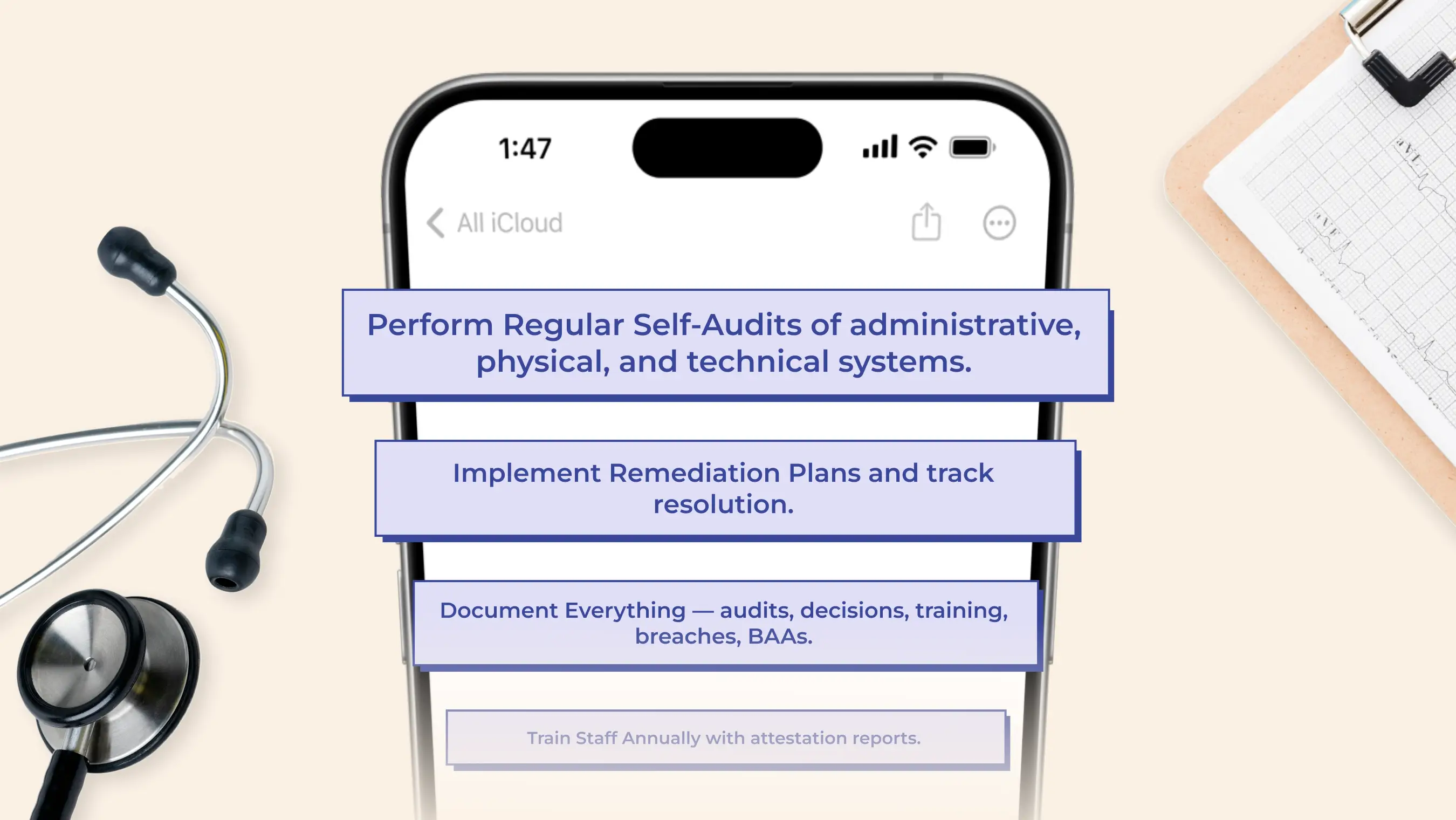
Is Your Healthcare Product HIPAA Compliant?
HIPAA sets the rules for handling sensitive patient data in the US. If your product collects or shares medical info, compliance may be required. This guide explains who it applies to and how to meet the standards from day one.
.webp)
HIPAA stands for the Health Insurance Portability and Accountability Act. It’s a U.S. law that protects sensitive patient health data. If your healthcare app collects, stores, or shares medical information, HIPAA compliance likely applies to you.
HIPAA defines how patient information must be handled, outlines penalties for violations, and sets clear rules for privacy, security, and breach notifications. Whether you're a startup building a new digital health product or improving an existing one, it's essential to know where your responsibilities lie.
Key HIPAA Rules You Should Know
1. Security Rule
Outlines safeguards to protect electronic protected health information (ePHI):
- Technical safeguards: encryption, access control, secure data storage
- Physical safeguards: controlled facility access, secure devices
- Administrative safeguards: internal policies, staff training, risk management
2. Privacy Rule
Covers how patient information is collected, shared, and disclosed.
3. Breach Notification Rule
If a data breach happens, covered entities must notify the U.S. Department of Health and Human Services (HHS) and the affected individuals.
4. Omnibus Rule
Extends HIPAA responsibilities to business associates (e.g. cloud services, software vendors) who handle PHI on behalf of healthcare organisations.
5. Enforcement Rule
Defines investigation procedures and penalties for non-compliance — including fines and potential legal action.
Does Your Product Need to Be HIPAA Compliant?
Many digital health founders struggle to understand if HIPAA applies to their product. Here’s a quick guide:
You likely need to be HIPAA compliant if your app:
- Stores or shares protected health information (PHI) with a covered entity (e.g. clinics, insurers)
- Allows users to communicate directly with healthcare providers (chat, video, forums)
- Involves electronic records of diagnoses, prescriptions, test results, or billing
You may not need to be HIPAA compliant if your app:
- Is for consumer wellness only (e.g. tracking weight, sleep, or workouts)
- Doesn’t store or share PHI with covered entities
- Is used solely for medical reference (e.g. for providers to look up drug interactions)
The key difference is PHI: if your app handles medical data that connects to a person’s identity and is shared with healthcare providers, HIPAA likely applies.
Steps to Make Your Product HIPAA Compliant
HIPAA compliance isn’t a certificate or one-time check. It’s a mindset and process, built into how your product is designed and managed. Here's what it takes:
Start With the Basics:
- Encrypt all PHI at rest and in transit
- Limit access through role-based permissions
- Use strong authentication (e.g. 2FA)
- Log and audit access to PHI
- Keep PHI off notifications (e.g. push alerts)
- Set up data backups and remote wipe options
- Host data on HIPAA-compliant infrastructure
Operational Steps:
- Sign Business Associate Agreements (BAAs) with all third-party vendors handling PHI
- Provide regular staff training on data protection
- Document your security policies and incident response plan
- Keep your tech stack patched and updated
HIPAA compliance is not just about checking legal boxes. It's about building trust — with users, partners, and regulators.
Final Thoughts
If your app handles patient data, you can’t afford to ignore HIPAA. Fines for violations can reach millions of dollars, but the real risk is loss of trust.
At Diversido, we’ve helped healthcare companies build secure, compliant apps since 2013. We understand the technical, legal, and human sides of HIPAA. If you need a team that knows how to bake compliance into the architecture — from day one — we’re here to help.
Need a HIPAA-ready tech partner?
Let’s talk!




.webp)

